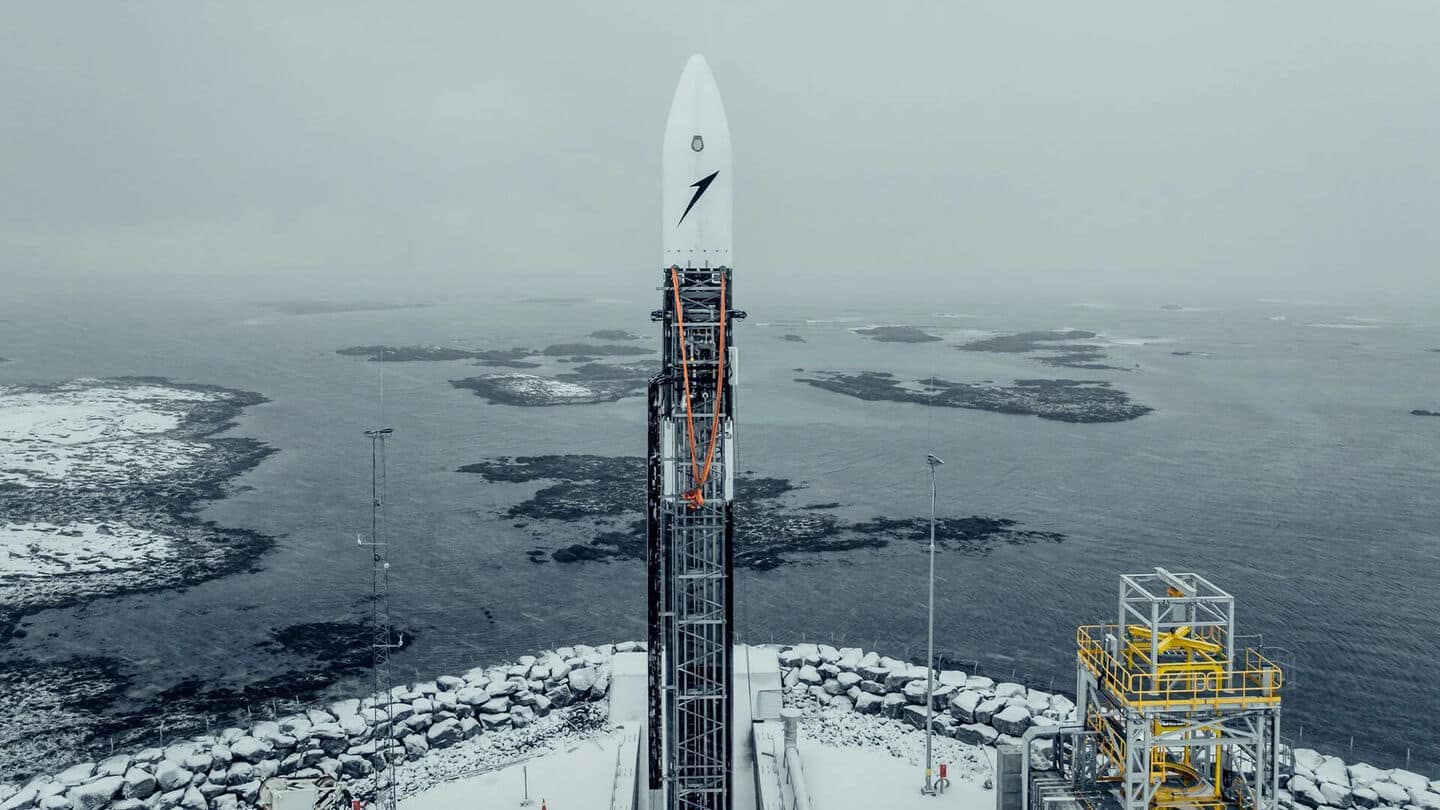
Europe's first orbital rocket launch ends in failure
What's the story
German start-up Isar Aerospace's first-ever space mission ended in failure today.
The company's Spectrum rocket, which was designed to launch small to medium-sized satellites weighing up to 1,000kg, exploded just 40 seconds after liftoff from a Norwegian space port.
Despite the failure, Isar Aerospace said the test provided valuable data for future development of its proprietary launch vehicle.
Flight details
Spectrum rocket's maiden flight ends in dramatic fashion
The 95ft tall Spectrum rocket took off from Norway's Arctic Andoya Spaceport. However, it encountered an anomaly just 18 seconds into the flight.
Dramatic footage showed the rocket tumbling before crashing to the ground and exploding in a fireball.
While the cause of the anomaly is still unclear, it seems Isar Aerospace terminated the flight after seeing its vehicle start to tumble mid-air.
Test mission
No payload onboard
The Spectrum rocket's maiden flight was a test mission, with no payload onboard. Isar Aerospace hoped to gather data about the vehicle during this initial launch.
This was also the first rocket launch from Andoya Spaceport, which opened in 2023 along Norway's northern coastline.
The spaceport's ground stations and facilities were specifically built for Isar Aerospace and its Spectrum rocket, and appeared unharmed after the incident.
Future missions
Future plans for Spectrum rocket
Despite the setback, Isar Aerospace has already signed a deal with the Norwegian Space Agency for the first commercial missions of its Spectrum rocket.
The company plans to launch satellites for Arctic Ocean Surveillance (AOS) program by 2028. It remains uncertain whether today's anomaly will affect this timeline.
The firm had previously warned that the initial launch could end prematurely.